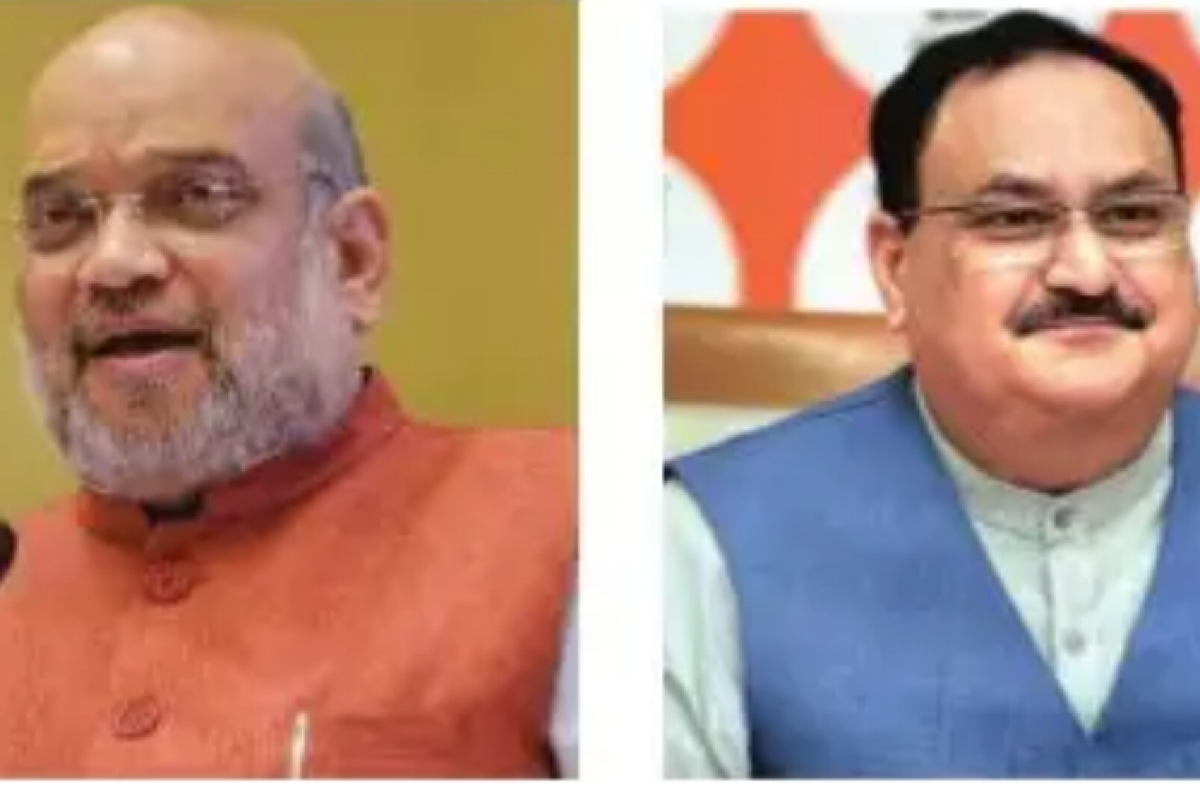Delhi CM meets Amit Shah, seeks his guidance on working for Viksit Delhi
Gupta also sought suggestions from Shah on the execution plan of the BJP government regarding the preparation to deliver the promises made to the people of the city.
Union home minister Amit Shah and BJP national president JP Nadda landed in Kolkata on Tuesday (26 December) to assess the organisational preparedness in Bengal ahead of the upcoming Lok Sabha polls in 2024.

Amit Shah and JP Nadda (Photo:SNS)
Union home minister Amit Shah and BJP national president JP Nadda landed in Kolkata on Tuesday (26 December) to assess the organisational preparedness in Bengal ahead of the upcoming Lok Sabha polls in 2024. Amit Shah and J P Nadda, as per schedule, held a series of organisational meetings during the day with state BJP workers.
Both the central leaders on Tuesday visited and offered prayers at Gurudwara Bara Sikh Sangat in Kolkata on the occasion of Veer Baal Diwas. Both the senior BJP leaders visited Kalighat temple for which security arrangements were tightened.
Advertisement
Amit Shah today has set the target to win 35 out of the 42 seats in Bengal and will discuss strategies ahead of the new year, a senior BJP leader said. According to BJP state general secretary Agnimitra Paul, the joint visit of the top two leaders underscores the significance that Bengal holds in the eyes of the party’s central leadership. Before the Lok Sabha elections, BJP central leadership bestowed confidence on former state president and MP Dilip Ghosh to effectively manage the party’s organization.
Advertisement
Amit Shah and Nadda included him into the 15-member election committee of the party. In the committee, party’s state president Sukanta Majumdar, Leader of Opposition in Bengal Assembly Suvendu Adhikari, Dilip Ghosh, Rahul Sinha, Locket Chatterjee, Amitabh Chakraborty, the party’s five state general secretaries, and five central leaders, including Satish Dhawan, Asha Lakra, Mangal Pandey, Amit Malviya, and Sunil Bansal, are members.
Notably, all members of the core committee, including Mithun Chakraborty and Anupam Hazra, have not been included in the party’s election committee; instead, only five central leaders have been inducted. This decision makes it clear that there is a lack of special confidence in the state leaders’ leadership by the central leadership of the party.
According to sources, this core committee will be responsible for determining the party’s strategy and the selection of Lok Sabha candidates. Each member will submit a separate list of candidates to the central leadership. Afterwards, the central leadership will choose the candidates for the elections.
Advertisement